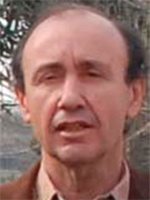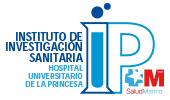Animal models of inflammatory diseases and tissue remodelling
Group Information
The group is researching the involvement of Toll-like receptors (TLR)/NFAT/cyclooxygenase (Cox)-2/prostaglandins (PGs) in the immune system and inflammatory pathologies such as obesity, cancer and sepsis. PGs trigger the activation and migration of T lymphocytes, controlling the duration of their interaction with antigen-presenting cells. The migration of macrophages is induced by PGs due to the activation of p110-gamma-PI3K by PG receptors. PGF2-alpha negatively regulates adipocyte differentiation through NFAT transcription factor. In addition, NFATc4 deficiency induces obesity in mice, indicating a key role in obesity and fatty acid metabolism.
Cox2 inhibitors reduce colon cancer, but present cardiovascular risks. As an alternative therapeutic approach, we have analysed genes regulated by Cox2 and selected those that could provide a proto-oncogenic advantage to form tumours and/or metastasis. Among them we have identified mPGES1, PMEPA1 and DUSP10 as Cox2-induced molecules in ovarian and colon cancer. mPGES1 is involved in growth enhancement and is induced through a mechanism dependent on PGF2-alpha/Egr-1. DUSP10 controls the stress response due to serum withdrawal and confluence stop, while PMEP1A induces the Epithelium-Mesenchymal Transition. DUSP10 inhibits activation of mitogen-activated protein kinase (MAPK) p38, whilst PMEPA1 inhibits phosphorylation of SMAD1, 5, 8 by TGFβ.
Different genetic lines have been defined in Trypanosoma cruzi, the main agent that causes Chagas disease. However, the comparative knowledge of its biology and pathogenesis is fragmentary. We have identified T-cell-dependent immune responses in both patients and mice, which differ depending on the strain infected. In addition, we are studying how the parasite enters, infects, and escapes destruction by myeloid cells, defining Slamf1 (CD150) as a newT. cruzi receptor. On the other hand, we have found that Slamf8 (CD353) is a cell surface receptor that is expressed after activation of macrophages by IFN-gamma and plays a negative role in infection by suppressing NADPH oxidase.
In the coming years, we will continue studies on the role of Cox-2/PGF2-alpha and different members of the NFAT family in adipocyte differentiation, and how this translates into obesity and insulin resistance. In addition to completing research into the role of DusP10 and PMEPA1 in ovarian and colon cancer, we will analyse the role of other Cox-2/NFAT-dependent genes that we have already identified in colon cancer and intestinal inflammation. Finally, work will continue on the impact of the genetic variability of T. cruzi on the clinical outcome and immune pathology of Chagas disease, as well as on drug susceptibility. All this with the intention of improving understanding and prevention of this disease.
Team members

Group leader: Manuel Fresno Escudero Universidad Autónoma de Madrid-Molecular Biology Institute |
Other team members:
|
This grant is funded by the 2013-2016 Spanish Science, Technology and Innovation Research Plan and the ISCIII – Subdirectorate General for Evaluation and Promotion of Research – and co-financed by the European Regional Development Fund, Operational Programme Smart Growth 2014-2020 according to Regulation (EU) no. 1303/2013.
Fresno Escudero, Manuel. Immunoregulatory molecules as biomarkers predicting response to biological therapies and disease severity in immune-mediated inflammatory disorders. BIOMID PROJECT. PIE13/00041. Coordinated project. ISCIII. 2014-2016.
Fresno Escudero, Manuel. Prostanoids and TOLL-like receptors as key mediators and potential therapeutic targets in chronic diseases: cancer and obesity. SAF2013-42850-R. MINECO. 2014-2016.
Fresno Escudero, Manuel. HOMIN: Host-microbe interactions in health and disease. Interface with the immune system. 317057. European Commission. 2013-2017.
Fresno Escudero, Manuel. RICET: Red de Investigación Colaborativa en Enfermedades Tropicales (Collaborative Research Network on Tropical Diseases). RD12/0018/0004. ISCIII. 2013-2016.
Fresno Escudero, Manuel. INDISNET: Molecular and Cellular Networks in Inflammatory Disease. S2010/BMD-2332. CAM. 2012-2015.
Gironés Pujol, Núria. MicroRNAs in infection by trypanosoma cruzi: immunopathogenesis and translational applications. SAF2015-63868-R. MINECO. 2015-2017.
Fresno Escudero, Manuel. Role of TCFL5/CHA transcription factor in the normal and pathological development of T and B lymphocytes. SAF2016-75988-R. MINECO 2016-2019.
Fresno Escudero, Manuel. Toll-like receptor (TLR) ligands: a new and alternative way of treating congenital diaphragmatic hernia (CDH). SAF2015-72162-EXP. MINECO PROGRAMA EXPLORA 2016. 2016-2017.
Arranz de Miguel, Alicia. Akt in the intestinal epithelium: Differential role of Akt isoforms in homeostasis of the epithelial barrier in the development of intestinal inflammatory disease. SAF2015-74250-JIN. MINECO. 2017-2019.
Gómez del Arco, Pablo. Epigenetic Regulation in the Identity of the Striate Muscle. SAF2016-77816. MINECO. 2016- 2019.
Sánchez-Valdepeñas C, Casanova L, Colmenero I, Arriero M, González A, Lozano N, González-Vicent M, Díaz MA, Madero L, Fresno M, Ramírez M. Nuclear factor-kappa B inducing kinase is required for graft-versus-host disease. Haematologica 2010. 95: 2111-2118. FI: 6.532(Q1). PMID: 20823135. DOI: 10.3324/haematol.2010.028829.
Cuervo, Henar, Guerrero, Nestor A., Carbajosa, Sofia, Beschin, Alain, De Baetselier, Patrick, Girones, Nuria, Fresno, Manuel. Myeloid-Derived Suppressor Cells Infiltrate the Heart in Acute Trypanosoma cruzi Infection. J Immunol 2011. 187: 2656-2665. FI: 5.788(Q1). PMID: 21804013. DOI: 10.4049/jimmunol.1002928.
Calderon, Jossela, Maganto-Garcia, Elena, Punzon, Carmen, Carrion, Javier, Terhorst, Cox, Fresno, Manuel. The Receptor Slamf1 on the Surface of Myeloid Lineage Cells Controls Susceptibility to Infection by Trypanosoma cruzi. PLoS Pathog 2012. FI: 8.136(Q1). PMID: 22807679. DOI: 10.1371/journal.ppat.1002799.
Diaz-Munoz, Manuel D., Osma-Garcia, Ines C., Fresno, Manuel, Iniguez, Miguel A. Involvement of PGE(2) and the cAMP signalling pathway in the up-regulation of COX-2 and mPGES-1 expression in LPS-activated macrophages. Biochem. J. 2012. 443: 451-461. FI: 4.654(Q1). PMID: 22268508. DOI: 10.1042/BJ20111052.
Díaz-Muñoz MD, Osma-García IC, Iñiguez MA, Fresno M. Cyclooxygenase-2 Deficiency in Macrophages Leads to Defective p110 gamma PI3K Signaling and Impairs Cell Adhesion and Migration. J Immunol 2013. 191: 395-406. FI: 5.362(Q1). PMID: 23733875. DOI: 10.4049/jimmunol.1202002.









